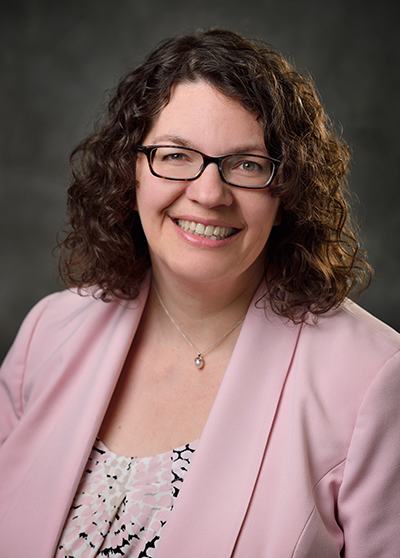
BIOGRAPHY
Stacey Missmer, ScD. received her Bachelors degree in Biology from Lehigh University and her Master and Doctor of Science (Sc.D.) degrees in Epidemiology from Harvard School of Public Health. She joined the faculty of Harvard University as an Instructor in 2003 and was promoted to Assistant Professor in Obstetrics, Gynecology, and Reproductive Biology at Harvard Medical School and of Epidemiology at Harvard School of Public Health in 2006 and to Associate Professor in 2012. From 2012 until August 2016, Dr. Missmer was the faculty lead for the Reproductive, Perinatal and Pediatric Epidemiology (RPPE) concentration in the Department of Epidemiology, Harvard T.H. Chan School of Public Health. Also during these years, she was the Director of Epidemiologic Research and the Fellowship Research Director for the Division of Reproductive Medicine and also the Director of the Growing Up Today Study in the Channing Division of Network Medicine at Brigham and Women’s Hospital and Harvard Medical School. In 2016, Dr. Missmer was the first faculty member to be endowed through Michigan State University’s Global Impact Initiative and is currently Professor in the Department of Obstetrics, Gynecology and Reproductive Biology in the College of Human Medicine.
RESEARCH
Stacey Missmer joined the Nurses’ Health Study (NHS) Research Group at Harvard University in 1998 initially as a member of Dr. Susan Hankinson’s hormonal markers of breast cancer discovery team. Since then she has been the senior endometriosis investigator with the NHS Research Group. In 2007, Dr. Missmer joined the International Endogene Consortium as the US Principal Investigator - combining resources for GWAS discovery of endometriosis with Australia PI, Dr. Grant Montgomery and UK PI, Dr. Krina Zondervan. In 2012, Dr. Missmer co-founded the Boston Center for Endometriosis with Dr. Marc Laufer, and serves as the Scientific Director where she designed and leads the Women’s Health Study: from Adolescence to Adulthood (A2A) - a multi-hospital and population-based cohort with longitudinal data and biologic sample collection. In 2014 as a member of the World Endometriosis Research Foundation (WERF) Board of Directors, she conceived of and became Co-Principal Investigator with Dr. Zondervan of the Endometriosis Phenome and Biobanking Harmonization Project (EPHect). Dr. Missmer is currently the Chair-elect of the Endometriosis Special Interest Group and also Chair of the Nutrition Special Interest Group for the American Society of Reproductive Medicine (ASRM). Formerly an Associate Editor, she is a member of the Statistical Advisory Board for Human Reproduction and currently serves on the Data Safety and Monitoring Board of the NIH Reproductive Medicine Network (RMN). Author of more than 200 peer reviewed publications, reviews, and book chapters, her research has focused on causes, consequences, and discovery of modifiable factors related to reproductive health.
Much of Dr. Missmer’s research has focused on identifying factors that affect the risk of endometriosis – particularly among young women and girls. Her research team has confirmed or identified variation in the population-based incidence of endometriosis associated with in utero exposures and early life body size, exercise, and dietary intake. Dr. Missmer’s team has been critical in considering validity of study design and analytic approaches, since we are hindered by a potentially large pool of undiagnosed and underserved women and girls given the diagnostic difficulties for endometriosis. In addition, her research suggests that girls and women with endometriosis may be a “high risk” group for autoimmune disease, cardiovascular disease, and specific cancer types – reinforcing the importance of longitudinal discovery. Critical to this discovery is defining and validating endometriosis heterogeneity by applying precision medicine methods that have successfully revolutionized our understanding risk, treatment, and prognosis among cancer subtypes.
This lifecourse and subgroup-centric approach also applies to Dr. Missmer’s second area of research – predictors of infertility, access and response to infertility treatment, and the longterm health of women with infertility. In 1998 she joined Dr. Dan Cramer’s multi-site study of predictors of in vitro fertilization (IVF) outcomes, assuming the role of Principal Investigator in 2006. Within this cohort of nearly 3000 couples undergoing IVF, this team has explored the relations between diet, physical activity, cigarette smoking and caffeine and alcohol consumption on successful conception and livebirth. She has also led the design and analyses for clinical studies of IVF outcomes with Drs. Catherine Racowsky and Elizabeth Ginsburg of the Center for Infertility and Reproductive Surgery at Brigham and Women’s Hospital. Within the Nurses’ Health Study II, her team has evaluated demographic and lifestyle characteristics influencing infertility treatment seeking and exposure patterns.